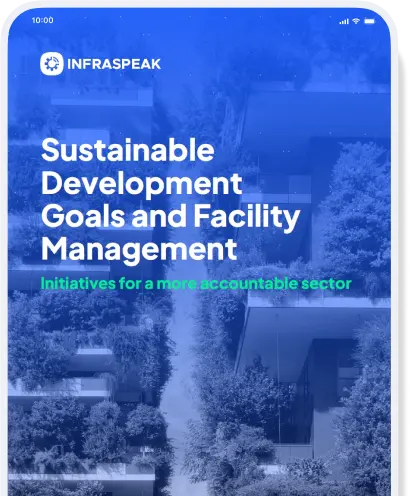What is supplier relationship management?
Supplier relationship management (SRM) is the relationship between companies — the supplier and the supplied — and is absolutely critical for your company’s growth, innovation and budget control.
Think about your suppliers just like monarchs think about their kitchen staff. If you ever feel that they are unimportant, remember that they are the ones preparing your next meal. Why do you think kings and queens used to have food tasters?
Yet, many professionals struggle with it. They grapple with communication barriers, contract complexities, and the challenge of fostering collaboration.
In fact, according to Procurement Tactics, 63% of U.S. retail companies have troubles with their supply management processes, resulting in substantial delays and re-stocking nightmares. Nightmare on Elm Street would seem like a kids’ movie compared to the horror you may experience if you don’t improve your supplier management. It goes without saying that it benefits companies from a financial standpoint, by either lessening supply disruptions or just because you can negotiate better deals when you carry a holistic view of supply.
A Deloitte study on supply chains shows that companies with better supplier management have significantly above-average revenue growth and EBIT margins when compared to their peers. Improved results – or the ability to catch up with a market leader – are another benefit of a good supplier management strategy.
Understanding supplier relationship management
Supplier relationship management is about creating long-term value. SRM is a truly growing market and its expected compound annual growth rate is +14% until 2026, but three-quarters of Chief Procurement Officers (CPO) say they feel they don’t have enough metrics to gauge the success and health of their supply chain.
Effective SRM involves more than just transaction management; a robust SRM strategy includes understanding supplier capabilities and aligning them with the organisation’s goals.
Key elements of SRM include:
- Communication: Ensuring transparency and clarity in all dealings.
- Collaboration: Working together to achieve mutual goals.
- Innovation: Encouraging suppliers to bring new ideas and solutions.
SRM in facilities management
SRM has a significant impact on day-to-day operations, influencing everything — from maintenance schedules to cost efficiencies.
A successful SRM approach ensures that facilities managers receive high-quality service from their suppliers, which is crucial for maintaining safety standards and ensuring operational continuity. With effective SRM, facilities managers can streamline vendor interactions, reducing complexity and saving time.
Additionally, SRM in facilities management helps in aligning supplier practices with organisational sustainability goals. By fostering strong supplier relationships, facilities managers ensur their operations are both efficient and responsible.

Assessing your current supplier relationships
The first step in improving supplier relationships is assessing their current state. This involves a detailed review of all existing supplier interactions and agreements.
Begin by gathering data on supplier performance. This includes delivery times, quality of goods or services, and communication efficiency. These metrics will provide a clear picture of each supplier’s contribution to your operations.
Next, evaluate the strategic importance of each supplier. Determine which suppliers are critical to your operations and which provide less strategic value. Once you have assessed the current supplier landscape, look for common bottlenecks that hinder supplier effectiveness.
Finally, solicit feedback from internal stakeholders. Engage with your team to understand their interactions and experiences with each supplier. Their insights can reveal hidden challenges or opportunities for strengthening relationships.
Use the following checklist to evaluate your SRM practices:
- Review communication protocols: Ensure clear and consistent communication channels with suppliers.
- Evaluate supplier performance: Conduct regular performance reviews and gather feedback from all stakeholders.
- Assess technology utilisation: Check if current systems and tools are effectively supporting SRM activities.
- Analyse contract management: Examine contract terms for fairness and alignment with strategic goals.
- Examine risk management: Evaluate how effectively you’re addressing potential risks with suppliers.
Building stronger supplier partnerships
Clear communication and mutual goals
The foundation of these partnerships is built on trust and mutual understanding, so it is critical to establish open lines of communication. Regular check-ins and updates keep both parties informed about progress and challenges, and ensure that everyone is on the same page.
📝 On this topic, read our take on how communication also drives better maintenance & facilities management. You may also be interested in knowing the main trends and challenges in FM in 2025.
Shared goals also play a significant role in strengthening supplier partnerships. When suppliers and organisations aim for common objectives, it leads to alignment in priorities. Strong supplier relationships often lead to enhanced service quality, since suppliers who feel valued are more likely to prioritise your business needs and deliver excellence.
“We still tend to see facilities management ‘from this side and that side.’ It is necessary to integrate all areas involved and communicate efficiently what is exactly being done. In other words, communicating to people and ensuring they understand what is expected of them, and what they can bring to the table as a result of working together. But this is an influence that needs to exist from the top down.”
— Juliane Sena Favrin, Founder and Executive Director of Ybira
Negotiating win-win contracts
Contracts should be viewed as a foundation for collaboration, not just a legal safeguard. Both parties should feel valued and fairly treated in the contractual agreement.
A fair contract ensures that risk is shared equitably between both parties. This creates a sense of partnership, rather than an adversarial relationship. Additionally, flexible contract terms support adaptability in changing circumstances.
Regular performance reviews and feedback
During reviews, be sure to highlight achievements, not just areas of concern. Positive reinforcement encourages suppliers to continue delivering quality services.
Remember: feedback should be a two-way street. Make sure to encourage suppliers to share their experiences and suggestions.
Go for the long-haul partnership
A Deloitte research on CPOs found that “high performers and agility masters perform better on a higher quality of [stakeholder] influence rather than just the quantity of sourcing-centric [spend] influence.”
Identify your main suppliers and develop a long-term strategy to keep them on your side with added value for both. Don’t do it like Boeing, whose strategy of constantly parting ways with suppliers ended up getting them years behind schedule on orders.
Remember: just like man, no company is an island.
Work collaboratively with your suppliers using Infraspeak Network™
SRM is not just about spreadsheets and emails anymore.
One significant trend is the increasing focus on strategic collaborations. Businesses are moving beyond transactional dealings to form more strategic alliances with their suppliers. This shift encourages innovation and helps achieve long-term objectives.
One of the biggest advantages of technology is the automation of routine tasks. Automation reduces human error, saves time, and allows for a focus on strategic activities.
Technology also fosters better data management. Storing and accessing data in digital systems allows for a new level of transparency, that helps in making informed decisions quickly and efficiently. On the other hand, digital platforms enable real-time tracking of supplier performance so you can easily monitor KPIs, ensuring compliance and quality.
And finally, there’s a growing emphasis on sustainability. Companies are prioritising suppliers that align with their environmental goals and by adopting solutions like Infraspeak Network™, businesses can better track and manage their environmental impact, ensuring responsible sourcing.
Designed as a collaborative supplier relationship management solution, the Network connects customers and suppliers in a single workspace, reducing administrative burdens, streamlining workflows, and providing real-time insights to enhance overall efficiency and performance.
If buying, you can:
- Create quote requests and share them directly, without leaving the Infraspeak platform.
- Process all received quotes and seamlessly associate them with the work order or planned job order they relate to.
- Compare received quotes and sign off on the best proposal.
- Turn the best proposal into a purchase, which you can manage on Infraspeak.
If selling, you can:
- Use Infraspeak to create and send quotes.
- Associate them with existing work orders and planned job orders.
- Centralise all of your sent quotes.
- Turn the quote which gets approved into a sale, which you can then manage on Infraspeak.


